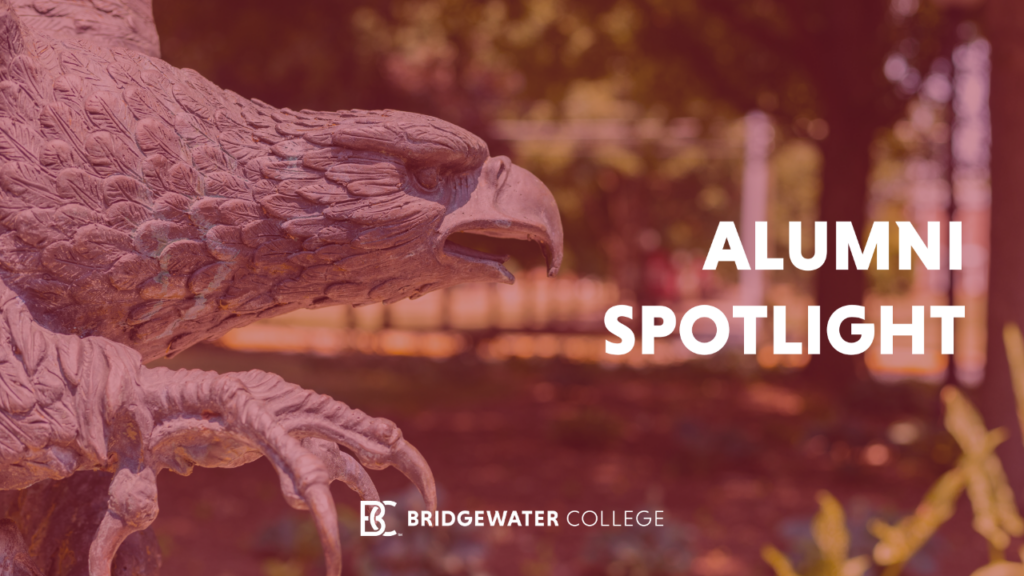When Abigail Cromer ’17 was growing up in Churchville, Va., the conversations around the dinner table often ranged from current events to topics relating to law enforcement. Her mother is a public-school teacher, her father a police investigator. Cromer knew that she wanted to pursue a career in a service field, but neither of those appealed to her. She had considered several colleges, but Bridgewater College was her top choice.
“It just felt like home,” Cromer said. “Everyone at Bridgewater was friendly and helpful. A small school was perfect for me.”
At Bridgewater, Cromer was admitted into the Flory Honors Program and threw herself into both classwork and sports. She initially ran cross country and track, then joined the ballroom dance club. Initially Cromer was considering a career in physical therapy. But then she took a psychology 101 class with Dr. Randall Young and decided to major in psychology instead.
“I realized that everything we used to talk about at home, we were talking about in class. I went home and told my father that I wanted to major in psychology, and he said, ‘Fine, but you’re going to need a graduate degree to get a job,’” Cromer recalled.
It wasn’t until a few years later that Cromer made the connection to what career path—and graduate degree—would be the best fit. She took a class in public mental health with Dr. Alan Eby and then spent the summer after her sophomore year shadowing the victim/witness advocate in the Commonwealth’s Attorney’s office in Rockingham County, Va. She completed a similar internship after her junior year. While observing the work that the advocates did in supporting those who were survivors or witnesses of crimes, an employee asked Cromer if she’d ever considered law school. A lightbulb went off for Cromer; law would be a way for her to make a career out of helping people in a way that would also make use of everything she was learning in her psychology classes.
Cromer went directly from BC to law school, graduating from William & Mary Law School with a juris doctorate in 2020. She said she felt that Bridgewater prepared her well for the challenging curriculum at William & Mary.
“I was used to a pretty heavy workload at Bridgewater,” Cromer said. “I had done a lot of critical thinking in my classes. BC had lots of classes that included writing and public speaking and that served me well in law school.”
It was her previous internship that helped her obtain her first job as Assistant Commonwealth’s Attorney for Rockingham County. In that role, and her current position as Assistant Commonwealth’s Attorney for Shenandoah County, Va., Cromer is responsible for prosecuting a variety of cases from property crime to domestic violence. But she has developed something of a specialization in the cases that involve the latter.
“Many, many of the domestic violence cases I see have a basis in mental health or substance abuse issues,” Cromer said. But she said that this is where her undergraduate education helps guide her decisions. “As a prosecutor, I have a lot of control over what happens in a case. I can choose not to prosecute or refer a defendant for counseling or other support.”
And in a small community, she can also get to know any extenuating circumstances around the cases she sees.
“I might know that a defendant has been a past victim of a crime. I might know that there is a history of domestic abuse in a family. There may be some unresolved trauma or cultural differences to consider.”
Cromer recalled that during the dinner table conversations when she was a child, most of the conversations relating to crime and law enforcement were black and white. There were good guys and bad guys. The police identified the bad guys, and the legal system put them away so they couldn’t hurt anyone. As the result of her education and her career, Cromer said her perspective has changed.
“Law enforcement is not all so black and white,” she said. “Justice is more complicated and can be different from case to case.”
She also sees herself as more than just a prosecutor, but also as an advocate for the best interests of everyone involved in a legal case.
“I love my job as a prosecutor. It is a very heavy burden of responsibility, but I love that I can fit the circumstances to the case. I can empower victims to speak their stories” Cromer said, adding that she hopes to spend the rest of her life doing this work that she finds so meaningful. “I finally found my niche.”
– Heather S. Cole


